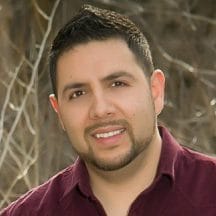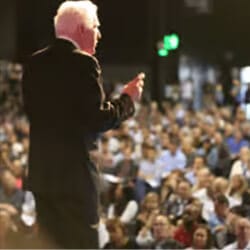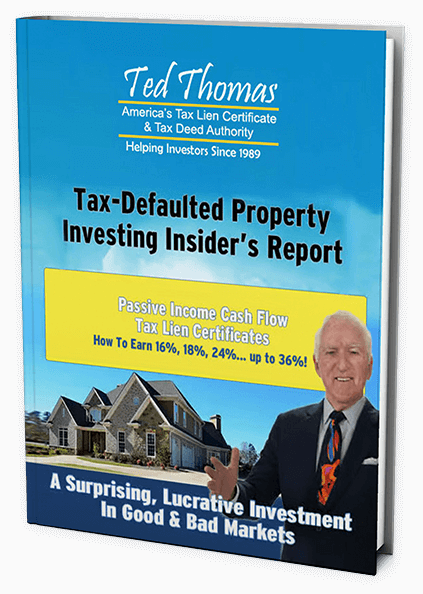In ‘From the Property Flipping Business to Tax Deeds’, Ted interviews Paul Castillo, a single father of 2 daughters, who started his real estate career in the property flipping business only to learn that the tax deed business was much more profitable and a lot less of a headache.
Paul tells how he decided to enter the property flipping business after losing everything in the great recession of 2008. Though his property flipping business was successful, he began looking for more effective ways to invest in real estate. That’s when Paul met Ted Thomas.
Paul shares his journey from the property flipping business to buying over the counter tax lien certificates in Nebraska to then moving on to invest in tax defaulted properties in Washington state.
MEET PAUL

Ted Thomas:
This is Ted Thomas, and I’m glad to have you here. We have a great guest today, so this will be a little fun. Some people have a lot of experience in real estate and of the past 10 years, I think one of the most popular businesses has been what people call flippers or the property flipping business.
So if you’re a real estate investor, and you heard about the property flipping business, well, I’ve got a former flipper with us today. He’s done very, very well for himself. Fortunately, he and I met a few years back, and he decided to change a little bit. We’re going to talk about some of that today.
Here’s a guy that’s a real talent, and he’s made a lot of money for himself. He’s had a chance to look at markets and so on. His name is Paul Castillo, and he lives over in Salt Lake.
Paul, I want to talk about tax lien certificates and tax deeds. In the past, I’ve told people I like to make money in a lot of different ways, but my favorite is tax liens and deeds. Let’s find out a little bit about you so you can tell us about yourself.
So let’s start out and talk a little bit about your family because I know you have a happy one, and you’re a great dad. I bet your daughters love you. You take them all over the country. They did more traveling by the time they were 18 than I did by the time I was 28. So I’m sure you’re the great dad that everybody wishes they had. Tell us a little bit about all that.
Paul Castillo:
Yeah. Thanks Ted. I’m 42 years old, and as you just acknowledged, I’ve got two daughters. Without a doubt, that’s the most important role in my life, being a father to these two beautiful girls. It’s the reason why I do everything I do. As you mentioned, I love taking them on trips and just being a very important part of their lives.
Ted Thomas:
Yeah. You don’t just do a trip around the state, you really travel. Tell us a little bit about that.
Paul Castillo:
Well, over the last few years, I’ve been really fortunate, and a lot of that’s due to the success I’ve had using your program. So I really want to thank you for that.
Ted Thomas:
Thank you.
Paul Castillo:
For me, where I’m divorced; I’m a single father. It’s always been important for me to be able to spend some quality time with my children. Twice a year, I love taking them on a nice vacation.
Over the last few years, because of the extra income that I’ve generated using your program, our trips have evolved from just having to stay somewhere local in our little region of the country, to being able to go to places. I’ve taken them to The Bahamas. I’ve taken them to Mexico. We’ve taken trips to the East Coast, Orlando to Disney world.
We’ve gone on a 10 day trip to the East Coast where I’ve been able to take them through, I guess you could say, a historical trip to Washington, DC, to Gettysburg, to New York City, Boston, the Trail of Tears. I mean really just done it all. It’s been really, really fun.
Ted Thomas:
So you made these wonderful trips, and how’d you find time to do all this? I know every time I talk to you, you’re always diligently working. How do you find time to do all these trips?
WIPED OUT BY THE GREAT RECESSION OF 2008
Paul Castillo:
Well, I’m one of those guys that lost everything during the recession, the great recession back in 2008, 2009. So just to give you a little background, I’ve been self employed.
I’ve been fortunate to be self-employed since I was 19, 20 years old. That sounds great to a lot of people, but as you know Ted, because you’re an entrepreneur, that comes with its ups and downs.
Ted Thomas:
Right.
Paul Castillo:
I started a business in 2003. I moved from Utah to Idaho to start this business, a consulting business, and did really well for five or six years. Then during the great recession, I lost everything. I mean, I literally mean everything.
Ted Thomas:
Really?
Paul Castillo:
Oh yeah. Yeah, to the point where I had to move in with a relative.
Ted Thomas:
Oh my goodness. That was a comedown, wasn’t it?
Paul Castillo:
It really was. I lived in a 5,000, 5,500 square foot home with the pool, all the toys that you can imagine, four or five car garage and took all kinds of trips. But, while I did well, I was in the situation where the business was more in control of me than I was in control of it.
In a way it was a real blessing because when I lost everything during those years, it gave me an opportunity to reflect and just think long and hard about what I had been through and where I wanted to go from there. That was when I decided that real estate was the right vehicle for me to go into.
Ted Thomas:
Yeah. That was painful, huh? That was quite a trip from 5,500 to, I don’t know if it was a basement or not, but to a relative’s bedroom, that was probably difficult. Yeah.
Paul Castillo:
It was a really humbling experience to say the least.
Ted Thomas:
So you know what it is to claw your way back up then, don’t you?
Paul Castillo:
Oh, yeah. But you know what they say? It is what you make of it. Rather than sit and complain and moan and do nothing about my situation, I just thought, okay, this is a good opportunity for me to never find myself, because see, I only had one source of income at the time.
When that business crashed, that was everything that I had, and I couldn’t sustain it. After this happened, I realized that the business that I was running was very, very vulnerable to the economy.
I recall spending some time writing things down on a piece of paper, making a list of what I have learned, what I don’t want to go through again, what was important for me moving forward.
A few of the things that I remember writing down was number one, I wanted to find something that was recession proof, that would work in a good economy, bad economy, good real estate market, bad real estate market, you name it.
I also wanted something where I didn’t ever, ever have to deal with employees again, and be reliable on other people. And wanted something where I wasn’t going to be a slave to my business, like I was with that business for the previous five or six years.
I wanted something that would provide me with a lot of flexibility, something that I could do from anywhere in the world. Those are just a few of the things that I had written down and I decided real estate was the right vehicle for me to go into.
Ted Thomas:
Well, that was a big change, wasn’t it? From consulting to hands-on real estate, so to speak, huh?
Paul Castillo:
Yeah, that’s right. I always knew that I wanted to get involved in real estate, but it’s one of those things where, I guess, until you really have to and your back’s up against the wall, you just put it off. That’s why I say that losing everything in 2008, 2009 turned out to be a real blessing in many ways.
Ted Thomas:
Wow. You have such a good attitude. Your attitude is you’re a survivor. You’re going to continue to be successful no matter what happens with the world around you. You’re going to recreate yourself. That’s really a good attitude.
Yeah. Nice to hear people talk like that. A lot of pessimism out there. It’s good for me to hear someone like you talk like that. Did you just start transitioning right away, or did you study? What did you do?
Paul Castillo:
I’d started studying and went to different events, seminars, you name it. Got my hands on whatever books I could find, searched the web just to try. You’ve got to start somewhere, right?
I had zero experience in real estate whatsoever. But I had also read about how real estate was a vehicle that was used by the vast majority of the most wealthy or successful people, not only in this country, but around the world. So obviously I knew that, okay, there’s a reason behind that.
When I first got started, I was still working, doing other projects to keep the lights on, so to speak. I knew that real estate, other people may want to tell you otherwise, but I knew that it wasn’t a get rich quick scheme. I knew it was something that I was going to have to be patient with and be realistic.
Ted Thomas:
I was just going to say you weren’t just looking by income. You were looking for long-term wealth. You could have real wealth that way. Yeah, I see.
ENTERING THE PROPERTY FLIPPING BUSINESS
Paul Castillo:
Correct. So I had a friend at the time that had a little bit of experience in real estate.
I decided to partner up with him, and he convinced me that based on what had happened over last few years, and based on where the economy was, that there was a huge need for an alternative investing product for people that had just lost their shirts. For people who lost a good portion of their wealth and their IRAs in the stock market, you name it.
They were looking. There was a huge need in the market for an alternative, like a safer investment type product for people that were just scared to death of the stock market. Right? I mean, you remember the market went down like what, 60, 70% at that time?
Ted Thomas:
Oh, absolutely. Yeah. The federal government had to step in and put money in. Otherwise, the whole thing would’ve collapsed.
Paul Castillo:
That’s right. Those bail-ins or whatever you call them. So my first foray was essentially the property flipping business, but with a little different twist.
At this time, the banks had a record number of properties on their books due to all the foreclosures, right?
Ted Thomas:
Millions of houses, yeah.
Paul Castillo:
As you know, Ted, the banks are not in the business of owning property. They just wanted to get rid of them. At this time, like 2010, 2011, you could literally, in certain markets, pick up properties from the banks for as little as five, six, seven, eight, 10 grand.
Ted Thomas:
Gee-whiz.
PAUL’S PROPERTY FLIPPING BUSINESS PLAN
Paul Castillo:
Yeah. So we saw an opportunity there. Again, I didn’t really know what I was doing, but at least theoretically, it made sense. With somewhat of an entrepreneurial background or mindset, and then having a business partner that had a little bit of experience, we decided that we would start buying these properties from the banks.
Then we would send a rehabber in there to fix it up. Nothing too extravagant, but nothing lipstick either. We definitely felt that people deserve a good place, a good livable place they could call home.
So we would buy the property from the banks and then fix them up, make sure that they were in good livable condition. At which point, we would put a property manager in place and then put a screened tenant in place that would sign…
We would like to get one, at least one, but more often than not, a two year lease. Once the property was cash flowing, then we would turn around, and we would target investors who wanted to use their IRAs, for example, to find a more secure investment than what they were getting in the stock market.
So that was our little niche there. Over those three years, we probably flipped around somewhere between 15 to 20 homes doing that.
Ted Thomas:
Good for you. You had to learn a lot. You had to learn how to do leasing, you had to learn how to hire property managers. You had to learn fixer-upper. I bet that was something, huh? Fixing property up.
RUNNING A PROPERTY FLIPPING BUSINESS REMOTELY
Paul Castillo:
Yeah, and we were also doing this remotely. The market that we chose to invest in was Indianapolis. Here I am in Utah, and my partner was down in Texas. Over those three years, we might’ve taken a couple of trips to Indianapolis. But for the most part, we were doing this remotely.
Ted Thomas:
Oh, boy. Well, fortunately you found a lot of people that could work with their hands and fix them up. Some markets, you can’t find the fixer-upper people, I understand.
Paul Castillo:
Well, we had to go through a few and definitely made some mistakes and learned some things the hard way.
Ted Thomas:
I think I’ve learned that lesson more than once. I don’t know why, but I like to buy them now and sell them. Just buy them and sell them. For me, that’s a better business, but sometimes you just have to fix them up. But I get it.
Okay, so you got a lot of experience in this. What was that, two or three years of that? Is that what you did? How long did that take?
RECONSIDERING THE PROPERTY FLIPPING BUSINESS
Paul Castillo:
It was about three years that we did that and made some money. But I also realized after three years of doing the property flipping business, and the headaches that came with it, I realized that it wasn’t the right, not real estate, just that particular model that we were using wasn’t the right long-term solution.
That’s when I started seeking out other solutions, just looking for a better way.
Ted Thomas:
Yeah.
Paul Castillo:
That’s when I discovered you and your program.
Ted Thomas:
Well, that was good. That was like a bolt of lightning or something. “Oh my God, this is impossible,” right? That’s what people say. I hear them say it all the time, “It’s too good to be true.” Yeah. So then what did you do?
Paul Castillo:
Well, so what happened is… You weren’t even aware of this, Ted, because when we first met, I don’t think you even knew that I had a little bit of a background in real estate and the property flipping business.
Ted Thomas:
No, I never imagined such a thing. I mean, 90% of the people that did the business, that you introduced to me, they don’t know a roof from a driveway, and they don’t have any experience, let alone fixer-upper.
They know the word because everybody, for some reason that word flipper, it caught on to a lot of people. I guess the newspapers and the TV people like the property flipping business, and I still see them doing it on television.
I try to tell people now, whatever you do, don’t watch those television shows because you’re going to go broke. There’s no way you can fix a property like they do for what they say. It’s impossible. But those shows keep going on.
So flippers just came out of nowhere. What was that? Suddenly everybody was talking about the property flipping business, and here you were doing it, and I didn’t even know.
Paul Castillo:
Yeah. Well, you weren’t aware of that. If you recall, you and I were introduced to each other by a mutual colleague. At the time, you were looking for a consultant, somebody that could join your team to fill a specific role.
Ted Thomas:
Right.
Paul Castillo:
Due to my background in business consulting, that seemed to be a natural fit. So here I am.
You and I were talking about working together for a very different reason, and I really didn’t know anything about it. I’d heard the term tax lien, tax deeds. I’d heard a little bit about it, but didn’t really know much. When I started learning more about it, after we were introduced, it really intrigued me.
Here I am starting to get exposed to your product, hearing about students of yours and how well they’d been doing, the kind of success that they had. As I learned more about it, the light bulbs just started going off. I felt like, “Wow, sometimes things happen for a reason,” and here’s the solution that I’ve been looking for all along.
Ted Thomas:
Now, you had a little experience. So I’m sure that there are a ton of people here that fixed up properties, and there are a ton of flippers.
Of course, all those great deals of getting it for 10 cents on the dollar sort of disappeared because everybody went in that business at the same time.
Although, I heard someone who was on television just a weekend or two back talking about the property flipping business still. So I guess there are still some of those out there. But I don’t think people are buying them for 10 and 20 cents on the dollar anymore or anything like that. They’re probably paying a lot more. So how long did it take you to learn how to do it?
Paul Castillo:
Are you saying the property flipping business or how to do-
Ted Thomas:
No, no. I kind of figured you never stopped running in the property flipping business because every house is different. But I figured the tax lien business must take some time to learn. So I was wondering how long? You had a little experience. A flipper could get in this business relatively quickly, couldn’t they?
FROM THE PROPERTY FLIPPING BUSINESS TO TAX LIENS AND DEEDS
 Paul Castillo:
Paul Castillo:
Yeah. The most important thing is to decide how they’re going to approach it, right? So I’ll tell you from my experience that when I first learned about this, having three years of experience in the property flipping business, I’ll be the first to admit that I was a little arrogant.
Ted Thomas:
Really?
Paul Castillo:
Yeah. I heard about this, I saw what other students were doing with it. I thought, “How hard can this be?” Right?
The first thing I did was I knew I wanted to get involved right away. By nature, I’m a little aggressive when it comes to business in general. I didn’t want to waste any time. So the first thing I did, Ted, is I bought six tax lien certificates over the counter in Nebraska.
STARTING WITH OVER THE COUNTER TAX LIENS
Ted Thomas:
Wait a minute, you’ve got to back up a little bit. What’s over the counter? What does that mean?
Paul Castillo:
Over the counter means that the certificates were auctioned off at an auction held by the county, but they didn’t sell, whatever’s left over.
Whatever doesn’t sell at that auction, the county has to decide what they’re going to with them. Depending on the state, some counties will offer them over the counter, meaning you can call them, get a list and just buy it any day that you want.
Ted Thomas:
Really?
Paul Castillo:
Well, others won’t do that, right? You have to find specific states that offer over the counter. That’s what I did, and that’s why I bought six liens specifically in Nebraska.
Ted Thomas:
This is funny. The world wouldn’t know this, but the first place I ever bought was Nebraska.
Paul Castillo:
Oh really? I didn’t know that.
Ted Thomas:
Yeah. In Douglas County, which I believe is Omaha.
Paul Castillo:
That’s where I bought mine. Yep, Douglas County.
Ted Thomas:
They had a tax collector that got old there, and he didn’t sell the properties. The county owned 3,000 properties there for a while. Then they brought a guy to sell them. I met him, and I ultimately ended up employing him. But most days, we used to buy with direct mail.
This is about you, so you bought these six tax lien certificates. Well, they pay pretty good in Nebraska.
Paul Castillo:
Nebraska is 14%. One of the things that’s been important to me is that I don’t want to be traveling all over the country, spending time away from my daughters or spending a bunch of money on flights, hotels, travel expenses, not knowing. You never know if you’re going to get anything or not, because it’s an auction-based business.
Ted Thomas:
Right.
Paul Castillo:
In the beginning, I knew that tax deeds is what I wanted to go after. Because I knew that I was going to need to spend a little bit of time determining which markets I was going to invest in and getting all my ducks in a row, I also didn’t want to let a week become a month, a month become a year type of a thing.
I wanted to just get in, and that’s why I bought six tax lien certificates. I had that feeling, that sense of like, “Okay, you’ve done your first deal,” then I could build momentum off of that.
So I remember calling the county, and verifying that they did offer over the counter. They told me they’d be happy to send me a list. So I looked through the list. I sent it right back in the mail with a check along with the ones that I wanted. I believe it was about eight of them that I wanted, and then six of them were awarded to me.
Then I remember about two weeks later, going to the mailbox and getting that first check in the mail.
Ted Thomas:
Oh, wow. That was making you feel really good. Now you got a business you could do from home.
Paul Castillo:
Yeah. I already knew that it worked, but it’s just taking it to a whole other level when you actually go to your mailbox and see that check come right from the government. It just gives you a whole other level of conviction.
It was bittersweet because it was nice to get the check, but it was also a little disappointing to see it redeemed so quickly because I wound up making pennies on that particular investment.
Ted Thomas:
Yeah. Whereas, if you had held it for a longer time, you would have made more money.
MASSIVE PROFITS WITH TAX DEEDS
Paul Castillo:
Correct. But again, for me, it was always about the deeds, and so it wasn’t too big of a disappointment. It was just, again, realizing it gave me that much more conviction that yes, the deed is where the real money is.
Ted Thomas:
Yeah. You were satisfying yourself that you could do it. It was no longer a question mark at that point.
Paul Castillo:
Yeah, that’s fair to say.
Ted Thomas:
It’s like the first time you drive the car by yourself. There’s nobody over there, “Go. Be careful. Put the blinker light on, blah, blah, blah.” You’re saying, “Well, I do that all by myself.” Kind of nice.
So then what happened? What happened after all that?
WASHINGTON TAX DEED SALES
Paul Castillo:
What happened is, in the meantime, I’m deciding where I’m going to be investing in deeds, and the state that I decided to start with was Washington.
Simply because again, I knew that I wanted to do deeds. I also knew that I wanted to find states that offered bidding online, where I could do it from my home and not spend time away from my children.
I also decided, and I could have picked a number of different states that fit that criteria, but then Washington, because it’s on the West Coast, closer to where I live here in Utah.
Also, the timing of it. This was getting later in the year, in 2015, and many of the states, as you know, this is governed at a state level. Some states will do auctions as much as once a month. Other states will do it as little as once a year.
Based on the time of year that it was, knowing that there were a few auctions coming up in the State of Washington within the next couple of months, that would give me enough time to prepare for the auction. Washington, I guess, was the state that I started in based on a process of elimination.
Ted Thomas:
Did you pick out rural counties, or did you pick high population areas? What did you do?
Paul Castillo:
Well, I actually decided that I wanted to start in a rural county just because in my mind, I felt that I would deal with less competition. Now I’ve found that, several years later, that isn’t always necessarily the case.
That was my thinking back then to avoid somewhere like Seattle, where every Tom, Dick and Harry is wanting to invest. Maybe pick a thriving market like that and maybe pick some rural counties a little bit further out that are not as well known, and maybe there’s not going to be as much competition.
Ted Thomas:
I see. Okay, good. And that was successful? Did you do those online? Or did you go there? What did you do?
Narrator:
Want to find out if Paul’s deal turned out successful? In part two, Paul Castillo will continue to talk about the deals he’s made, tips to be successful in investing in tax defaulted properties, and how he did all of this online, from home.
CONCLUSION
In ‘From the Property Flipping Business to Tax Deeds – Part 1‘, Paul shares his journey from destitute, to becoming a successful partner of a property flipping business, to ultimately making massive income from tax deeds.
He explains why he switched from the property flipping business to the tax deed business and what he learned from his mistakes along the way.
 If you’d like to know more about tax defaulted property investing, I have a FREE gift for you, the Safe Haven master course (a $197 value).
If you’d like to know more about tax defaulted property investing, I have a FREE gift for you, the Safe Haven master course (a $197 value).
Safe Haven is 2 streaming videos and a 100-page illustrated manual, that teaches you about tax liens & tax deeds. To learn more about tax defaulted property investing, act now and get your FREE Safe Haven course today.




